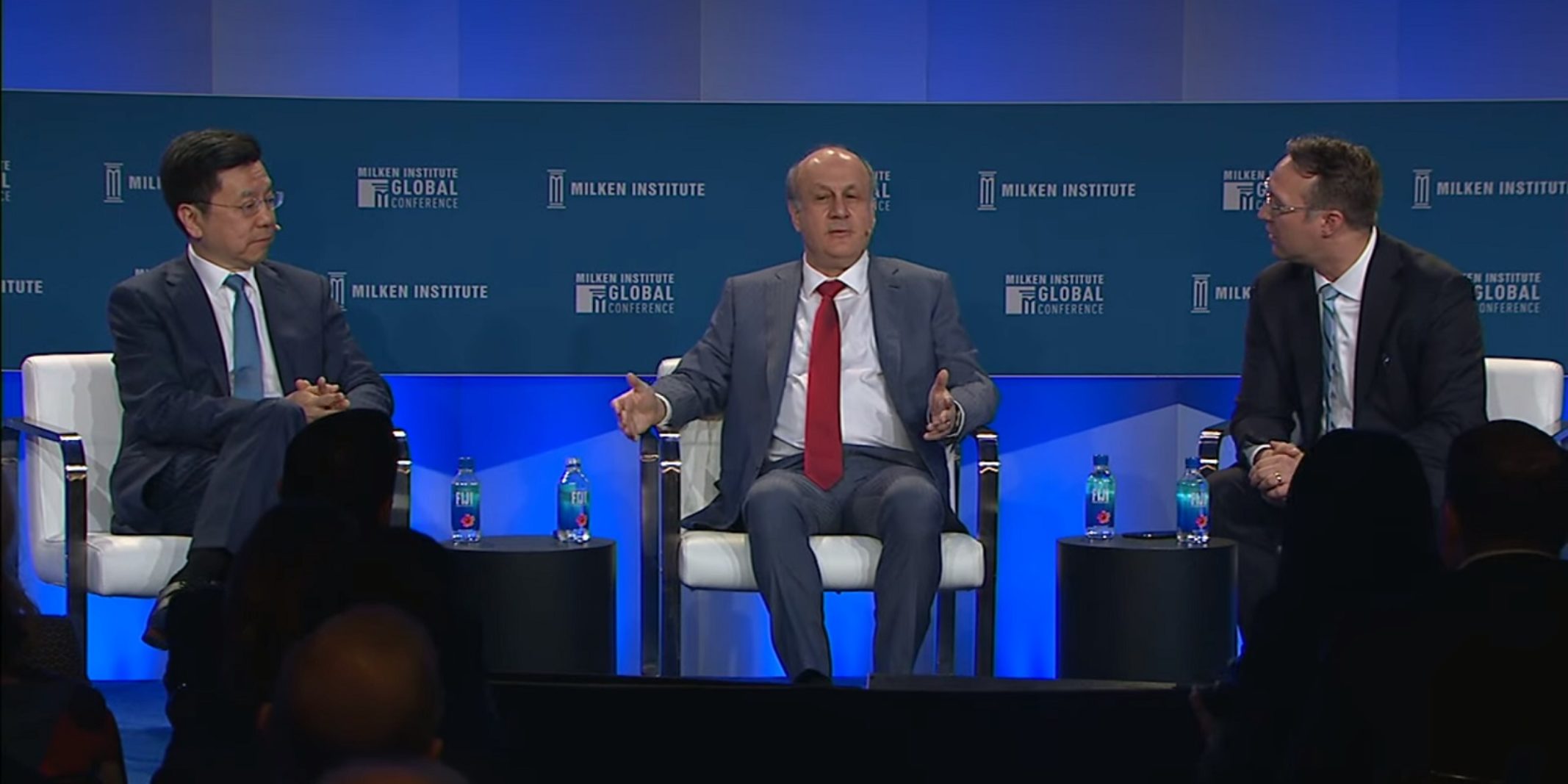How should businesses approach the promise and pitfalls of artificial intelligence? How fast should we expect AI and related technologies to improve from their current state? And what, as a society, should we be doing to prepare for an AI-powered future?
Speaking at the 2019 Milken Institute Global Conference, Two Sigma co-chairman David Siegel, Sinovation Ventures Chairman and CEO Kai-Fu Lee, and Bloomberg Businessweek’s Joel Weber tackled these questions and more.
Cutting through the “fog” of misconceptions
A “fog” of misconceptions surrounds the discussion of AI today, they noted, leading to an array of potential problems for businesses and legislators. For example, said Siegel, a broad lack of understanding among business leaders is leading to misallocations of capital as decision-makers try to tackle problems that are simply too difficult.
Part of the problem, he said, lies in the technology’s name: artificial intelligence is “neither artificial nor intelligent. It’s not artificial, because it’s real. And it’s not intelligent in the sense that any of us would describe our own intelligence.”
Siegel and Dr. Lee agreed that while AI presents exciting possibilities (a few of which really may seem like science fiction) most of the opportunity lies in using techniques such as machine learning to automate, or otherwise improve the efficiency of, certain specific processes.
How to understand where AI opportunities lie
So how can non-practitioners evaluate whether machine learning might be appropriate to apply toward a given process or task? Dr. Lee offers a rule of thumb: if it’s an optimization problem with some objective function (such as detecting credit card fraud), and you can collect large amounts of data that indicate a positive or negative outcome, then it might be a good candidate for a machine learning-based solution.
Siegel cited healthcare and education as two data-rich fields that seem ripe with opportunities to use AI for the public good. In the case of healthcare, however, progress will be slow until society comes to terms with the trade-offs between privacy and social good, noted Dr. Lee. Both agreed that AI could help bring scalable personalized learning techniques to education systems globally.
As for businesses looking to leverage AI to enhance performance, Siegel recommends that executives view it as simply one of many tools that can be used to make a business succeed. More broadly, he noted that many businesses would benefit from a more scientific approach to management–in other words, allowing decisions to be guided by data and experimentation, rather than primarily by intuition.
The future of AI and its role in the economy
Despite a lot of hype surrounding AI, both Siegel and Dr. Lee pointed out, progress in the field is likely to be slower than many seem to anticipate. “This doesn’t mean,” said Siegel, “that in 10 or 20 years someone won’t come up with the next big idea, beyond machine learning, that will take us to a much higher plateau. But it’s also possible that it will take 50 years, or 100 years.”
Even without another revolution in AI, society is bound to feel its effects. While the automation of repetitive processes is likely to make some current occupations obsolete, greater reliance on AI is also likely to create new opportunities for workers, similarly to how the advent of spreadsheet software empowered a new generation of accountants and financial analysts, rather than putting them out of work.
The greatest challenge going forward, said Siegel, will be to ensure that workers’ skillsets match the demands of an increasingly AI-enabled economy. Otherwise, he warns, while employment levels may not suffer per se, wages may stagnate and income inequality may increase.
Watch the full discussion here.






